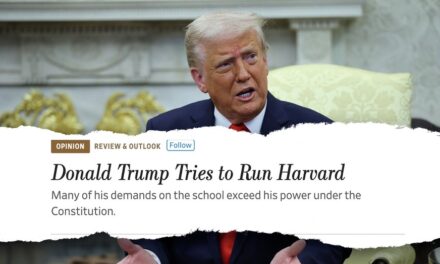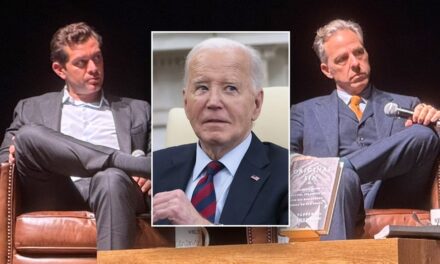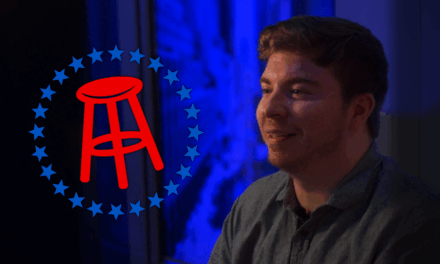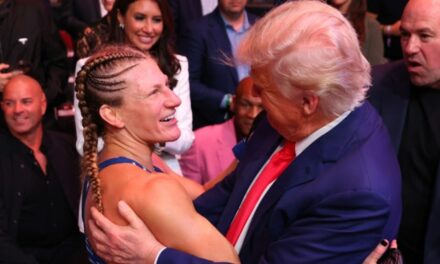The recent settlement of a lawsuit involving former U.S. President Donald Trump has triggered significant backlash against CBS’s parent company, Paramount Global. The controversy began when news broke that the media giant reached a settlement regarding its coverage of Trump during his presidency, which many viewers perceived as biased. The settlement has reignited debates about media ethics, political bias, and the responsibilities of news organizations in the ever-changing landscape of American politics.
Experts and media observers have pointed out that the timing of the settlement comes at a moment when Trump is still a polarizing figure in American politics. His influence within the Republican Party remains formidable, and any decision surrounding coverage of him tends to invite scrutiny. Many argue that traditional media companies, like CBS, should be held to high standards of neutrality, especially when reporting on a divisive political figure. The perception of bias can undermine public trust in the news, making it a crucial topic for discussion.
The lawsuit itself arose from allegations that CBS failed to provide fair coverage of Trump’s administration. Critics of the news outlet claimed that its reporting often leaned toward a narrative that painted Trump in a negative light. The lawsuit sought damages for what the plaintiffs described as defamation and misrepresentation. However, other legal experts have noted that such claims against media companies are often difficult to prove, given the First Amendment protections for freedom of the press.
The terms of the settlement have not been fully disclosed, leading some analysts to speculate about what this means for media accountability in the age of Trump. While some voices in conservative media hailed the settlement as a victory against perceived liberal bias, others expressed concern that it represents a capitulation to pressure that undermines journalistic integrity.
In the wake of the settlement announcement, social media was abuzz with reactions, some supporting CBS, while others vehemently condemned the company. Supporters have argued that the settlement is a pragmatic solution to avoid protracted legal battles that would consume resources and time. They posit that this approach allows CBS to refocus its efforts on producing quality journalism rather than getting entangled in lawsuits.
On the other side, detractors have warned that this could set a dangerous precedent for media organizations. Critics suggest that if networks can be effectively sued for their editorial choices, this could lead to a chilling effect on journalistic freedom. Fear of litigation might result in self-censorship by journalists and editors who wish to avoid backlash from powerful figures, including politicians and corporations.
Moreover, many media experts have raised concerns about how such settlements risk reshaping the landscape of journalism itself. When financial settlements become a norm in media disputes, there is a risk that they will prioritize corporate interests over journalistic integrity. This defeats the purpose of having a free press that serves to hold power accountable.
It’s also crucial to consider the broader implications for the media landscape as a whole. Incidents like this settlement create a ripple effect, influencing not just the media entity involved but also setting a precedent for other organizations. There is a growing concern that fear of legal action could lead to a homogenization of news coverage, where dissenting voices are minimized for fear of backlash.
In recent years, public trust in media has been on a decline. According to surveys, a significant portion of the American population believes that news outlets are biased in their coverage, particularly when it comes to politics. This settlement may serve to exacerbate such perceptions, as many people point to the case as evidence that media organizations are willing to compromise their principles under pressure.
The reaction from the Trump camp is illustrative of the current political climate. Some supporters celebrated the outcome as a form of vindication, while opponents viewed it as an opportunity to amplify their own critiques of media bias. Trump himself has a long history of battles with the press, often framing news coverage he disagrees with as “fake news.” This settlement offers him additional ammunition as he continues to criticize what he perceives as a hostile media environment.
At this juncture, the future of media coverage concerning Trump and similar political figures remains uncertain. With ongoing legal battles and the potential for additional lawsuits, the implications for news coverage could extend beyond CBS. Other media outlets might face increasing pressure to rethink their approaches when reporting on high-profile figures to avoid similar legal confrontations.
A pivotal aspect of media ethics is the balance between editorial opinion and factual reporting. This incident shines a light on the difficulty of navigating that balance, especially when the subjects of reporting are as divisive as Trump. How media companies choose to approach this challenge could define their credibility in the eyes of the public for years to come.
In conclusion, the settlement reached between CBS’s parent company and the plaintiffs has not only sparked outrage but also raised essential questions about media accountability and journalistic integrity. As discussions about political bias in media continue to evolve, it will be crucial for CBS and similar news organizations to remain vigilant in upholding their commitments to ethical journalism. The implications of this settlement may well reverberate beyond the newsroom, influencing public perceptions of media credibility and shaping the future of political reporting in America.































